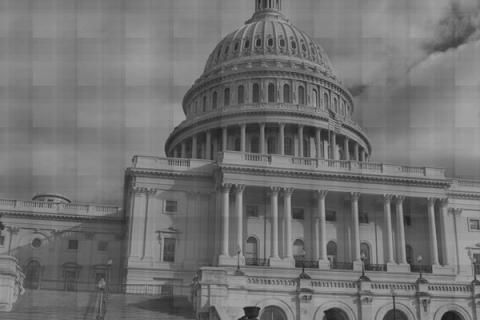The fiscal cliff is approaching and Congress and the president will soon come together to find a solution. Also set to expire at the end of the year are the Bush tax cuts that will have direct effects on high-income earners across the country. The tax cuts and the fiscal cliff are directly related as the fiscal cliff combines the expiration of tax cuts combined with planed sequestration across many sectors.
If the Bush tax cuts expire, the marginal tax rate for the highest income earners will return to 39.6 percent, the rate prior to 2001. The effect of these policies directly relates to the revenues collected by the US government every year, and arguably to the growth of GDP.
The non-partisan Congressional Budget Office (CBO) released a report in May 2012 regarding the expiration of the cuts and the effects on the economy. The study opens, “If the fiscal policies currently in place are continued in the coming years, the revenues collected by the federal government will fall short of federal spending.”
The CBO found that if the expiration of the tax cuts are maintained, GDP will rise an exceptional 4.4 percent in 2013, a much greater rate than the 0.5 percent growth projected for 2013 if the planned cuts and tax hikes occur. However, they warned that this will be temporary and we will likely reverse course into another recession in early 2013, with little growth by the end of the calendar year.
In the short term this is obviously an attractive solution. In the long term we would see our deficit reverse its current course of dropping from 70 percent of GDP and begin outpacing GDP growth to 90 percent of GDP by 2022. The CBO estimates that extending the Bush tax cuts could kick-start another fiscal emergency where national debt increases, investors lose confidence, and the government is unable to borrow at affordable rates.
One option for policymakers is to change the deduction structure for high-income earners, although this will only increase revenue by $12 billion. This increase in revenue is well short of the $50 billion that Obama hopes to increase revenue by while allowing the Bush tax cuts to expire completely.
Discussions are set to begin next week as leaders from both parties have been invited to the White House. In a speech on Friday, Barack Obama stated, “If we’re serious about reducing the deficit we have to combine spending cuts with more revenue, this means asking the wealthiest Americans to pay a little more.”
President Obama is planning to cut $4 trillion in the national deficit in ten years. He has signaled that he is open to compromise, but will not increase taxes on the middle class or students while the wealthy do not see increased rates. The speech was largely a posturing endeavor leading into the discussions that should close by the end of the year and will have direct impacts on the life of every American.
Speaker John Boehner announced publicly that he believes 2012 “should be the year that we begin to solve our debt through tax reform and entitlement reform,” although he would like to avoid any tax increases.”
Regardless of the posturing occurring between the two parties that will begin discussions next week, they are dealing with an issue of paramount importance. It’s clear that compromise is the best solution, as an extension of current policy will increase growth temporarily, but pass the buck with the deficit, which would inflate to 90 percent of GDP in ten years. If the tax cuts expire and sequestration measures go into effect then another recession is probable by the end of 2013.
Both President Obama and Speaker John Boehner will be called on to craft a tax structure that includes measures of compromise and long-term fiscal strategy. Doing so will take several weeks, although these policy changes should be made before year’s end.

